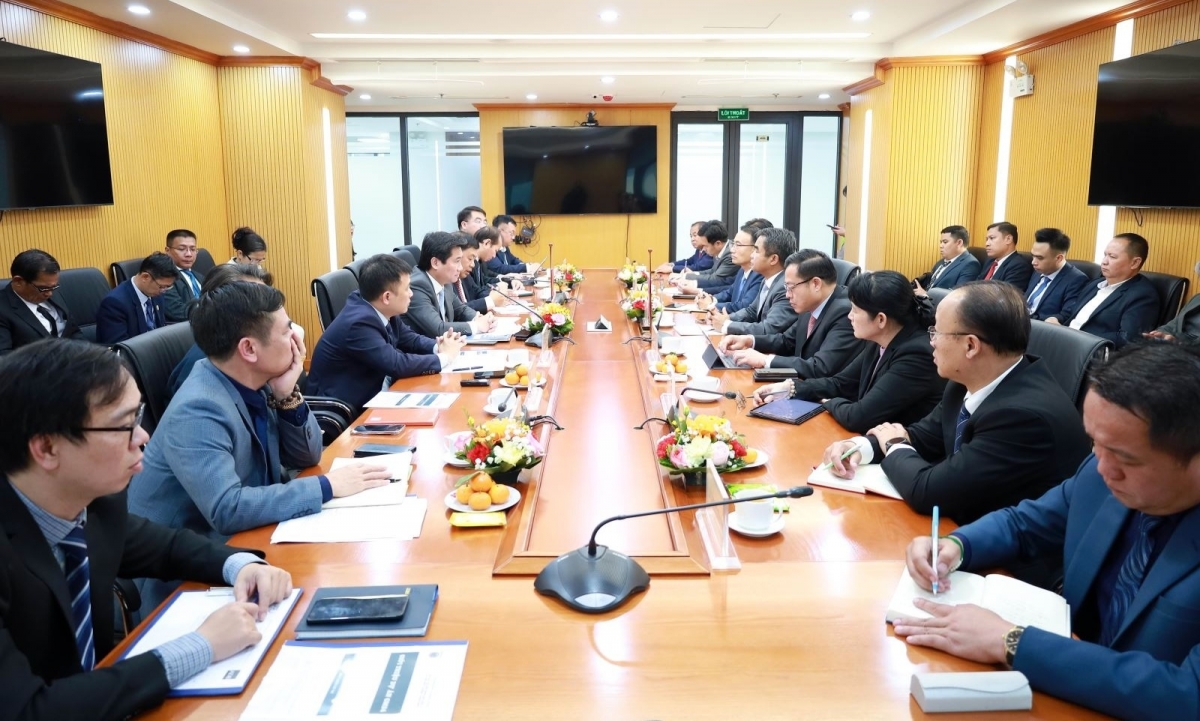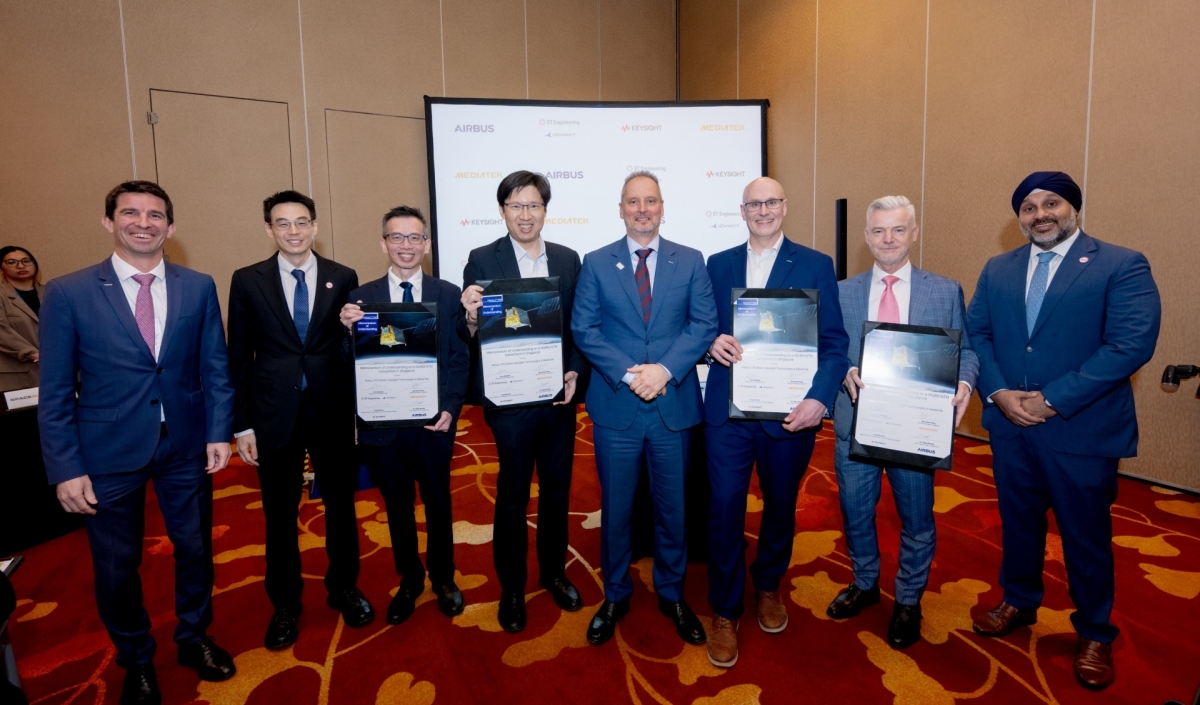INTERNATIONAL INVESTMENT
AND PORTAL
 Sreenivas Tirumala from RMIT University Vietnam Sreenivas Tirumala, senior lecturer of IT at RMIT University Vietnam
Sreenivas Tirumala from RMIT University Vietnam Sreenivas Tirumala, senior lecturer of IT at RMIT University Vietnam
Due to the huge capabilities and influence the US boasts in these domains, the US's cooperation is necessary for developing most countries, including Vietnam, to advance in science and technology. However, recent reports indicate that President-elect Donald Trump is developing sentient technology export policies that might impact Vietnam's technological advances, particularly in AI and cybersecurity.
Although the likelihood of continuing the technological cooperation agreements signed by businesses from both countries in September 2024 is high, the new policies around 'America First' – emphasising design, development, and manufacturing in America – may impact technology transfer through offshore economic and services industries that are planning to invest in Vietnam.
Due to its strategic location, Vietnam is an important partner for the US. This implies that Vietnam will not have to be “self-reliant” when it comes to cybersecurity, which is one of the country's biggest problems.
The US can provide the necessary technologies to help Vietnam tackle this threat, which can help the US monitor various common threat actors. As decentralised cyber resilience networks are emerging, the US may consider investing in cooperation with Vietnam.
Digital transformation is progressing at a good pace in Vietnam, including in e-government development. However, several areas still need automation, particularly in service industries, which US tech giants like Microsoft would be interested in pursuing.
While key fields like agriculture, manufacturing, and oil and gas could be improved through digital transformation, cooperation in these areas seems unlikely due to the in-country manufacturing and 'Drill, baby, drill' policies of Donald Trump, which encourages American companies to move back to the US or start new manufacturing domestically. Therefore, minimal, if any, support is expected in these areas in terms of technology transfers.
The US has been a world leader in technological advancements, particularly AI. As Vietnam is an emerging nation in AI, technological cooperation and transfer are very important. There is no specific mention of AI-based implementations or support in Donald Trump's policies. However, recent developments in other technological cooperation suggest that the US may be interested in investing (and testing) their AI-based technologies for disaster management and natural calamities in Vietnam.
Seeking support in areas like air pollution and weather forecasting will be a win-win for both the US and Vietnam. The US would have the opportunity to test their new equipment and AI-based models in Vietnam before implementing them on a large scale back home.
However, given Donald Trump's stance on climate change, cooperation's implications remain uncertain.
 Scott McDonald, lecturer of Logistics and Supply Chain Management at RMIT University Vietnam Scott McDonald, lecturer of Logistics and Supply Chain Management at RMIT University Vietnam
Scott McDonald, lecturer of Logistics and Supply Chain Management at RMIT University Vietnam Scott McDonald, lecturer of Logistics and Supply Chain Management at RMIT University Vietnam
While tariffs present challenges, they may also drive innovation and improvement across the Vietnamese industry. The resulting transformation could position Vietnam as an even more valuable trading partner for the US in the years ahead.
There are several key approaches that could reshape Vietnam's export landscape over the next decade. Most importantly, the focus must shift from pure cost competition to value creation. Vietnamese manufacturers would benefit from increasingly investing in advanced technologies and skilled workforce development to move up the value chain.
This transformation is already being discussed across several sectors. Major manufacturers are implementing Industry 4.0 technologies, including AI-driven quality control systems and automated production lines. These investments not only improve efficiency but also help offset potential tariff impacts through reduced operational costs.
Supply chain optimisation emerges as another crucial strategy. Some Vietnamese businesses are developing sophisticated logistics networks that incorporate real-time tracking, advanced inventory management, and predictive analytics. These improvements reduce waste, lower costs, and provide better service to US customers.
Relationship building with US partners is proving equally important. Many Vietnamese companies are moving beyond traditional supplier roles to establish strategic partnerships with US businesses. These collaborations often include joint product development, shared market research, and long-term supply agreements that can help buffer against market fluctuations.
There is an observable shift toward more integrated business relationships. Vietnamese companies are opening US offices, creating distribution networks, and developing direct relationships with end customers. This closer market presence helps maintain competitiveness regardless of tariff levels.
Innovation and specialisation are becoming key differentiators. Rather than competing solely on price, manufacturers are developing unique product offerings and specialised capabilities that make them valuable partners for US businesses. This includes investment in research and development, custom product development, and enhanced quality control systems. We are seeing some Vietnamese companies transform from contract manufacturers to true business partners, capable of delivering comprehensive solutions to US customers.
Looking ahead, several trends might emerge in Vietnam’s manufacturing industry like increased adoption of digital twin technology for supply chain optimisation; development of green manufacturing processes to meet US market demands; implementation of blockchain-based tracking systems for transparency; establishment of more US-based distribution centres; growth in joint ventures with US technology providers.
Vietnamese businesses are also strengthening their trade compliance capabilities. Companies are investing in expertise and systems to ensure smooth customs processes and maintain trusted trader status with US authorities. This professional approach to compliance helps build confidence with US partners and reduces transaction friction.
As global supply chains continue to evolve, Vietnam's strategic approach to maintaining strong US trade relationships demonstrates the country's growing sophistication in international commerce. Through technology adoption, relationship building, and continuous improvement, Vietnamese businesses must work now towards ensuring their place in the future of global trade.
Considering the political goals of the new administration about to take over the Oval Office, the future of Vietnam-US trade relies on the ability of Vietnamese businesses to adapt and innovate.
 Trump claims 'magnificent' victory over Harris
Trump claims 'magnificent' victory over Harris
Donald Trump claimed a "magnificent" victory over Kamala Harris in the fight for the presidency on Wednesday as results put him on the verge of one of the most stunning comebacks in US political history.
 Industrial real estate stocks benefit from US election results
Industrial real estate stocks benefit from US election results
Industrial real estate stocks are forecast to benefit from a surge in factory relocations driven by increased FDI following Donald Trump's US election victory.
 Trump's trade policies could shape Vietnam's economic outlook: Dragon Capital
Trump's trade policies could shape Vietnam's economic outlook: Dragon Capital
US policies under a Trump administration could significantly shape Vietnam's economic outlook, involving trade, investment, and market dynamics amid strong bilateral relations.



















